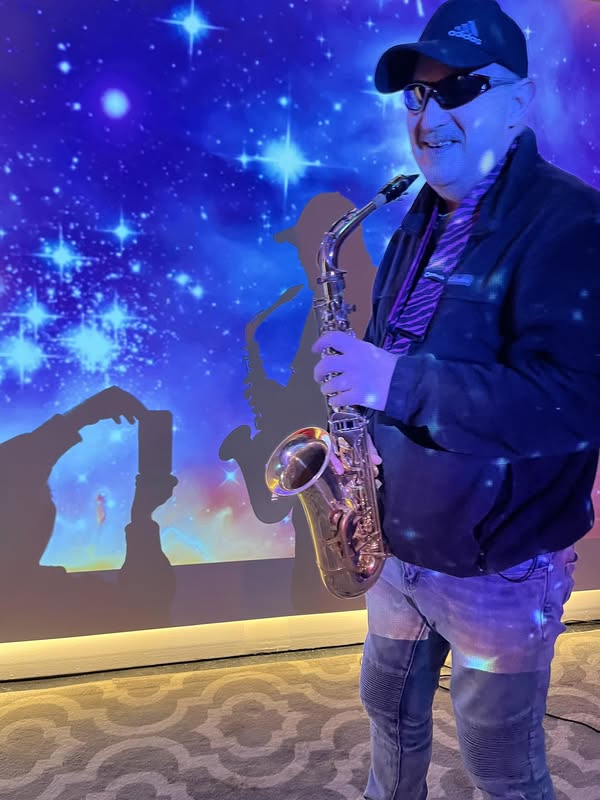Warren Bissonnette’s sudden passing on May 15, 2025, in Mesa, Arizona, has sent shockwaves through the local music scene and beyond, leaving a profound void that echoes in the hearts of fans, fellow musicians, and the broader arts community. As a founding member of the influential band Warehouse 3, Warren’s creative genius and soulful energy were cornerstones of a vibrant musical movement that shaped Arizona’s cultural landscape for decades. Known for his unwavering dedication to his craft and his role as a mentor and friend, his unexpected death has sparked widespread tributes and a renewed focus on the mental health challenges faced by artists in the music industry.
Though details surrounding Warren’s death remain private out of respect for his family, community sentiment and social media conversations hint at health or mental health struggles—issues that disproportionately affect musicians who navigate the pressures of creativity, financial instability, and public expectation. Unlike violent tragedies or accidents that often dominate headlines, Warren’s passing highlights a quieter, yet deeply impactful crisis within the arts: the need for accessible and compassionate mental health support.
Warren’s journey began in the Phoenix metro area, where he grew up surrounded by a burgeoning music culture. He quickly rose to prominence with Warehouse 3, a band celebrated for blending rock, funk, and soul into a sound that was uniquely Arizona. As a multi-instrumentalist, vocalist, and songwriter, Warren’s stage presence was electric, captivating audiences and fostering a sense of community among fans and fellow artists. His ability to channel raw emotion through music earned him a reputation as a true visionary and a beacon of artistic passion.
Throughout his career, Warren was not only known for his musical talents but also for his kindness and mentorship. He invested time in nurturing emerging artists and was an active participant in local events, frequently performing at venues like the Nile Theater and the Yucca Tap Room. His dedication extended beyond the stage, as he often advocated for greater recognition of the arts and pushed for initiatives that supported the creative community in Mesa and the surrounding areas.
Warren’s untimely death has reignited conversations about the immense pressures faced by musicians. Studies show that nearly one-third of artists experience mental health challenges exacerbated by irregular income, grueling schedules, and the often-isolating nature of the profession. In Mesa, where nearly 20% of residents report unmet mental health needs, these issues are especially pressing. The music community’s call for better mental health resources and stigma reduction is growing louder in the wake of Warren’s loss.
While there is no criminal investigation related to Warren’s death, local authorities and the Maricopa County Medical Examiner’s Office have likely conducted standard reviews typical for sudden deaths, focusing on providing answers to the family and community. Meanwhile, organizations like NAMI Arizona have increased outreach efforts, distributing crisis hotline information and coordinating with music venues to raise awareness about mental health.
The response to Warren’s passing has been immediate and heartfelt. A memorial concert scheduled for May 22 at the Nile Theater aims to celebrate his life and music while raising funds to establish a scholarship in his name for aspiring musicians. This event has garnered widespread support, with local bands joining Warehouse 3 on stage and fans coming together to honor a figure who gave so much to Arizona’s music culture. A GoFundMe campaign has also been launched to assist Warren’s family with funeral expenses and to support ongoing artist wellness programs.
Mesa Mayor John Giles expressed his condolences, emphasizing the city’s commitment to supporting its artists and addressing the mental health challenges they face. Local venues have organized tribute nights, and fans have been leaving vinyl records, candles, and handwritten notes at Warehouse 3’s rehearsal space—a testament to Warren’s enduring influence and the personal connections he forged.
The broader context of mental health in Arizona’s music scene reveals systemic gaps that Warren’s death has brought to light. Despite the rich cultural output, many artists face barriers to accessing care, with stigma and lack of resources preventing effective intervention. Mental health funding in Mesa is currently insufficient to meet demand, and only a fraction of music venues offer wellness resources. Nationally, initiatives like SAMHSA’s 988 crisis line have demonstrated success in reducing suicides, but local adoption and outreach remain inconsistent.
Warren’s legacy now serves as a catalyst for change. Advocates are pushing for expanded mental health services tailored to artists’ unique needs, educational programs to combat stigma, and wellness initiatives integrated into the cultural fabric of Mesa. Plans are underway to leverage state grants to enhance these efforts, and organizations like NAMI Arizona are coordinating workshops aimed at venue owners, musicians, and community leaders.
The death of Warren Bissonnette is a poignant reminder of the silent struggles faced by many in the creative industry. His passion, talent, and warmth made him a beloved figure whose absence is deeply felt. Yet, through mourning comes a powerful impetus for advocacy and reform. Warren’s story embodies the urgent need for compassion, awareness, and support structures that can preserve the lives and wellbeing of artists who enrich our communities.
In honoring Warren’s memory, the Mesa community is not only celebrating the life of a musical pioneer but also embracing a shared responsibility to foster safer, healthier environments for its artists. The ripple effects of his legacy will be felt for years to come, inspiring programs, policies, and cultural shifts that prioritize mental health and uplift the creative spirit.
As the community rallies in tribute, Warren Bissonnette’s soulful music and enduring kindness remain a guiding light—a testament to a life lived with passion and purpose. His story calls on all of us to listen more closely, support more fully, and act more decisively to ensure that no artist faces their battles alone.


